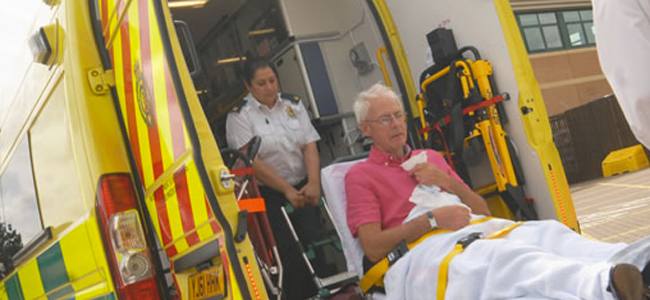
NHS 2014 survey: Listen about the staff
NOTE: Fourteen percent of NHS staff reported experiencing physical violence from patients, their relatives or other members of the public in the previous 12 months, down from 15% in 2013. Twenty eight percent of all staff report that they experienced bullying, harassment and abuse from patients, their relatives or other members of the public in the previous 12 months – a decrease from 29% in 2013. Two-thirds (66%) of incidents of physical violence were reported compared to 64% in 2013 and 44% of staff reported bullying, harassment and abuse cases (43% in 2013).
NHS England has today published the results of the 2014 NHS Staff Survey. The survey collects the experiences and opinions of NHS staff on a range of matters such as job satisfaction, wellbeing and raising concerns. The annual survey saw over 255,000 responses from staff including doctors, nurses, healthcare assistants, ambulance workers and non-clinical employees. Nearly 290 NHS organisations from across the country took part. Organisations can use the results to review and improve staff experience, which in turn can bolster improvements to patient care. The results also inform local and national assessments of the quality and safety of care, and how well organisations are delivering against the standards set out in the NHS Constitution.
Summary of key results:
- Patient care – In 2014, slightly more staff reported that care of patients is their organisation’s top priority (up from 66 percent in 2013 to 67 percent in 2014) and more felt that senior managers are committed to patient care (53 percent, up from 52percent in 2013).
- Raising concerns – 93 percent of staff reported that they know how to raise any concerns they had about unsafe clinical practice.
- Advocacy – 64 percent of staff would be happy with the standard of care provided by their organisation if a friend or relative needed treatment, down from 65 percent in 2013.
- Health and wellbeing at work – Fewer staff said that they experienced physical violence at work from patients, their relatives or the public in 2014 (14 percent, 15 percent in 2013). Fewer staff also said that they experienced harassment, bullying or abuse from patients, their relatives or the public, down from 29 percent in 2013 to 28 percent in 2014. Almost a quarter (24 percent) of staff said that they experienced harassment, bullying or abuse from their manager or other colleagues in 2014, a slight increase from 23 percent in 2013. From April 2014 the NHS is introducing a workforce race equality standard to track and reduce the differences on this and related issues between white and black minority ethnic (BME) staff at each NHS employer.
Neil Churchill, Director of Patient experience, said: “This national survey is a great tool to listen to NHS staff – one of the most dedicated staff groups in the country – and translate their views into tangible improvements to work environments. This is vital because we know that better staff experience means better care for patients.
“However, the national averages mask striking differences in staff experience between different hospitals and other NHS employers. It is vital that NHS organisations take ownership of their data and act on the results – all feedback becomes positive when it is used as a tool for improvement.”
NHS organisations should use their NHS Staff Survey results in conjunction with data from the Staff Friends and Family Test, which NHS England introduced last spring to provide NHS organisations with continuous and real-time data on staff views.
The full NHS Staff Survey 2014 results, and Trust’s data for indicator 8 of the workforce race equality standard, are available on NHS Staff Surveys website.
Additional information
- All full-time and part-time staff directly employed by an NHS organisation on 1 September 2014 were eligible to take part in the survey.
- The type and number of NHS organisations that participated in the NHS Staff Survey 2014 were:
- 138 acute trusts
- 57 mental health and learning disability trusts
- 19 community trusts
- 19 acute specialist trusts
- 40 CCGs
- 11 ambulance trusts
- 2 CSUs
- 1 social enterprise
- All organisations taking part delivered the same standard set of questions. However, organisations could choose to include additional questions from the following areas:
- Leadership and development
- Health and safety
- Patient experience
Organisations could also add additional bespoke questions.
The results published nationally only relate to the core questionnaire. The responses to any additional questions are for the use of the individual organisations only.


